|
Tutorial for Individual Provider Assessing Patients
Screener and Opioid Assessment for patients with Pain (SOAPP)
This is a tool for clinicians to help determine how much monitoring a patient on long-term opioid therapy might require. Physicians often remain reluctant to prescribe opioid medication because of concerns about addiction, misuse, and other aberrant medication-related behaviors, as well as liability and censure concerns.
Despite recent findings suggesting that most patients are able to successfully remain on long-term opioid therapy without significant problems, physicians often express a lack of confidence in their ability to distinguish patients likely to have few problems on long-term opioid therapy from those requiring more monitoring. It is important to remember that all chronic pain patients deserve treatment of their pain. Providers who are not comfortable treating certain patients should refer those patients to a specialist.
Clinically, a score of 7 or higher will identify 91% of those who actually turn out to be at high risk of developing problems using long-term opioid treatment.
Along with SETMA’s other tools, the SOAPP will help effectively, efficiently and excellently manage chronic pain and opioid use. Those tools are:
- Excellent medical records with accurate, up-to-date medication lists
- Electronic prescribing of all medications which makes number one much simpler
- Electronic prescribing of controlled substances and opioids which also makes number one simpler (for details see: The Opioid Epidemic: Part III - Electronic Prescribing of Control Substances for tutorial see: EPM Tools - ePrescribing of Controlled Substances Tutorial)
- Urine Drug Screens to avoid misdirection of controlled substances (for details see: The Opioid Epidemic: Part I The Problem)
- Auditing ability by the provider of his/her prescribing of controlled substances or opioids (for details see: The Opioid Epidemic: Part II Better Record Keeping; for full tutorial see: Electronic Prescribing of Controlled Substances (e-PCS) and Auditing)
- Automated Medication History through our EMR and Sure Scrips with point-of-care access to all prescriptions filled by any provider at any pharmacy. (for details see: The Opioid Epidemic: Part IV - Medication Reconciliation and the Electronic Medication History; complete tutorial see: EPM Tools - Medication Reconciliation Tutorial)
- State of Texas Prescription Monitoring System which provides access to all controlled substances prescriptions by any provider at any pharmacy for any patient (for details see: The Opioid Epidemic: Part V - The Real Surprise in Medication Reconciliation)
- Screener and Opioid Assessment for patients with Pain (SOAPP)
The following tutorial will describe how to use
the SOAPP tool with your patients.
To find the SOAPP tool clinic on the Master GP Template as outlined in green below.
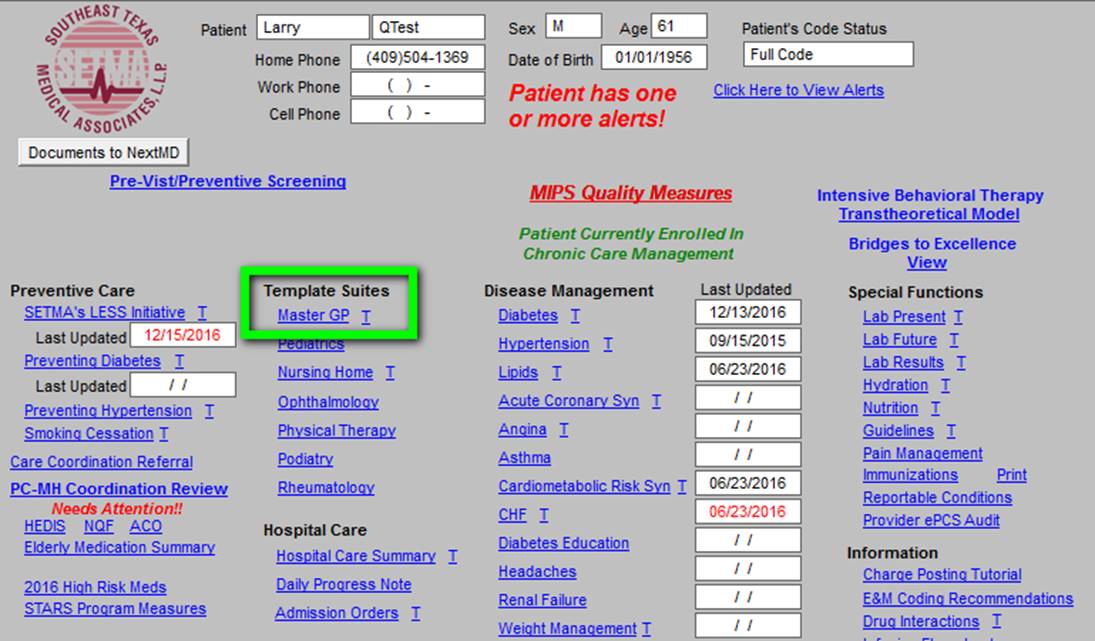
On the Master GP Template, clinic on the SOAPP Assessment button as below outlined in green
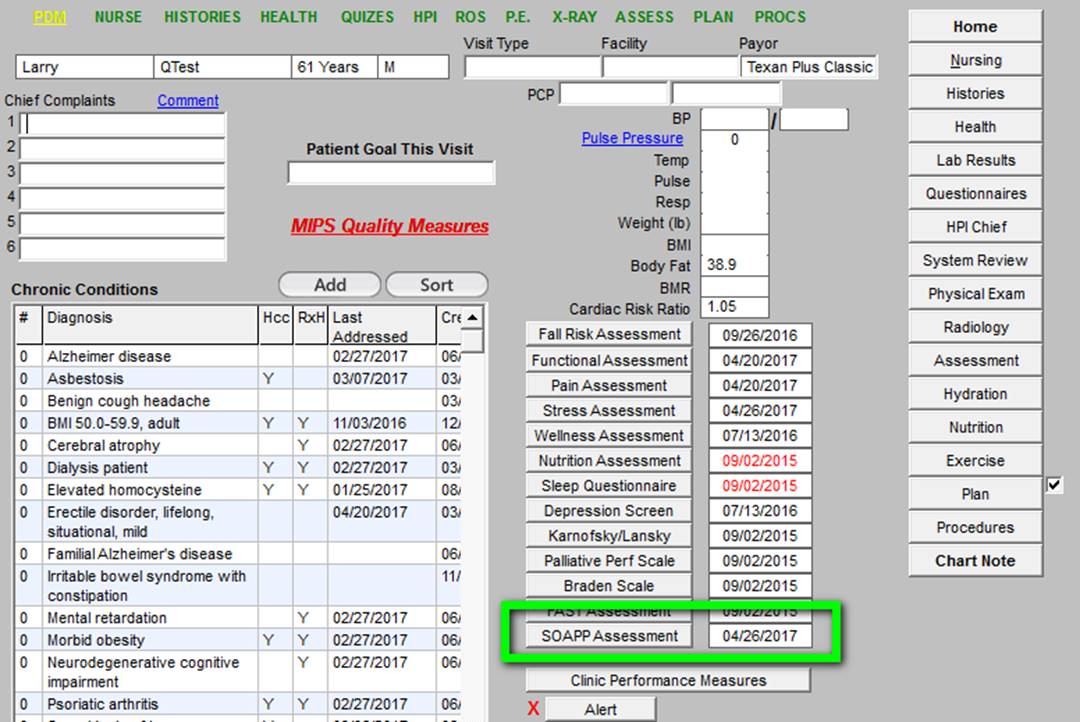
The 14 questions required for the completion of the SOAPP Assessment are listed below with the options available. Once this tool is completed, it will copy forward, making updates easier to complete.
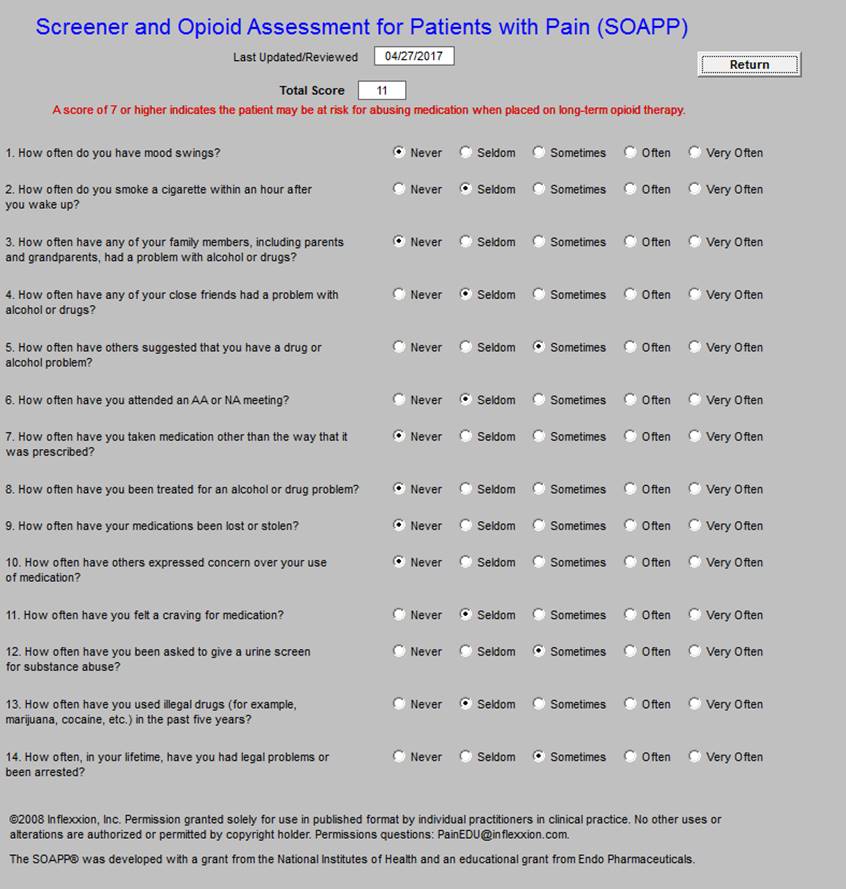
Once the tool is completed, the Last Update/Reviewed will be updated. The standard for SETMA will be that this tool will be completed once a year for patients who are thought to be at risk of abusing medications.
The total score will be automatically displayed. If it is above 7, the patient is considered to be at higher risk for developing problems with the use of opioids and should be monitored more carefully. Because the tool not perfect, attention should be paid to all patients.
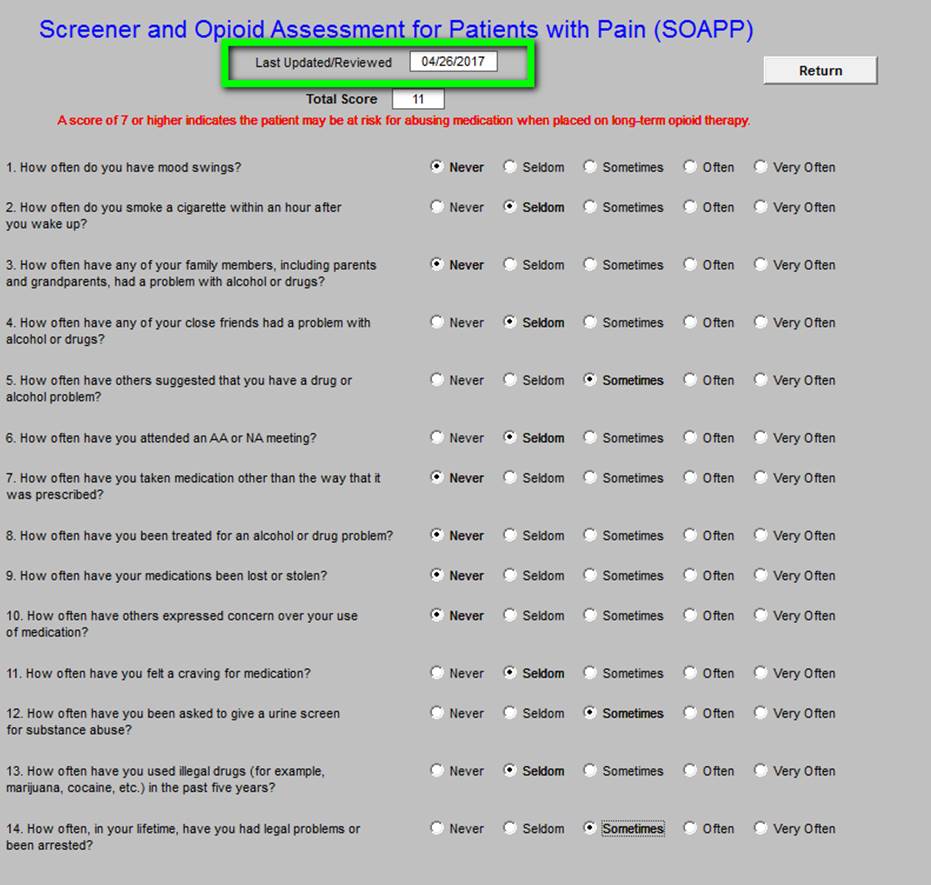
The assessment in red below will be part of the medical record once it is completed.
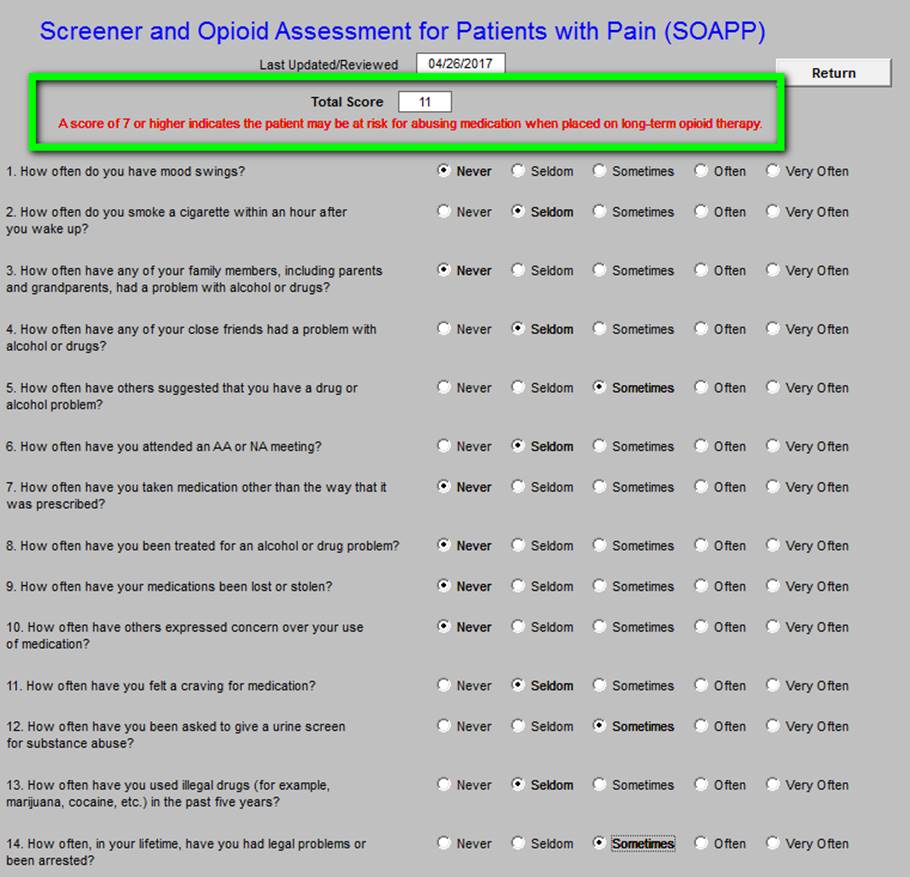
The RETURN button will take you back to the EMR GP Master.
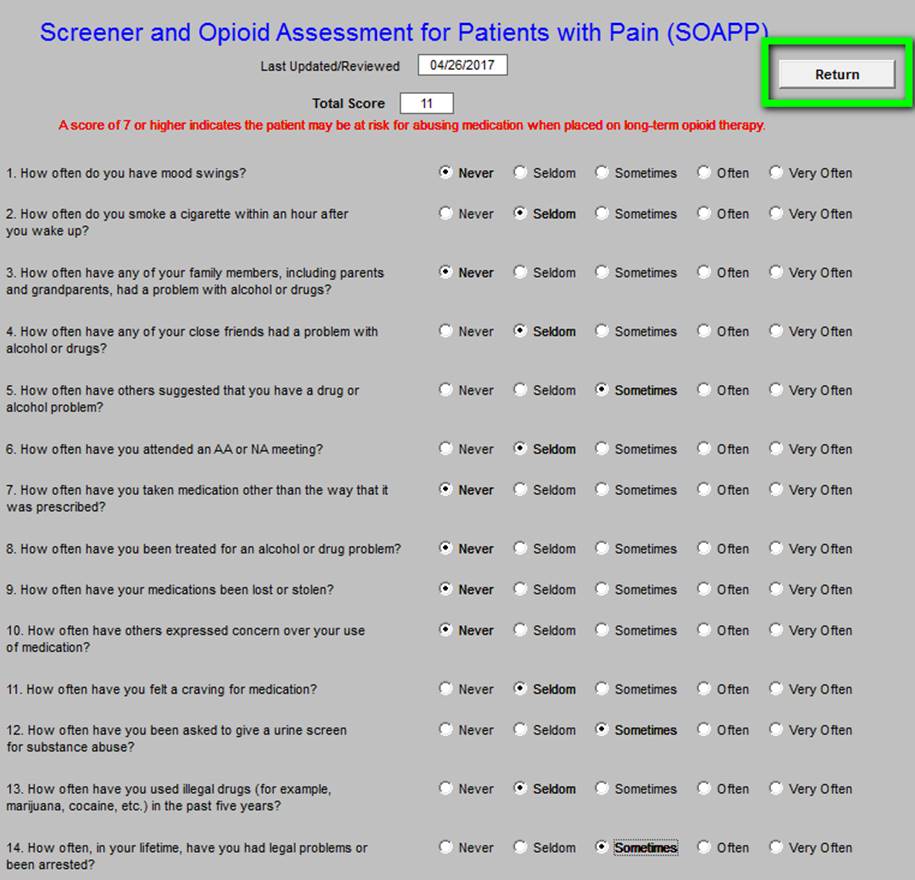
When the SOAPP is complete and the RETURN button is deployed, the following will appear on the patient’s chart note for that day’s encounter. This is the real result of a patient recently seen in our clinic.
Screener and Opioid Assessment for Patients with Pain (SOAPP)
- How often do you have mood swings? Seldom
- How often do you smoke a cigarette within an hour after you wake up? Never
- How often have any of your family members, including parents and grandparents, had a problem with alcohol or drugs? Never
- How often have any of your close friends had a problem with alcohol or drugs? Never
- How often have others suggested that you have a drug or alcohol problem? Never
- How often have you attended an AA or NA meeting? Never
- How often have you taken medication other than the way that it was prescribed? Never
- How often have you been treated for an alcohol or drug problem? Never
- How often have your medications been lost or stolen? Never
- How often have others expressed concern over your use of medication? Never
- How often have you felt a craving for medication? Never
- How often have you been asked to give a urine screen for substance abuse? Never
- How often have you used illegal drugs (for example, marijuana, cocaine, etc.) in the past five years? Never
- How often, in your lifetime, have you had legal problems or been arrested? Never
Total Score 4 points
A score of 7 or higher indicates the patient may be at risk for abusing medication when placed on long-term opioid therapy.
|